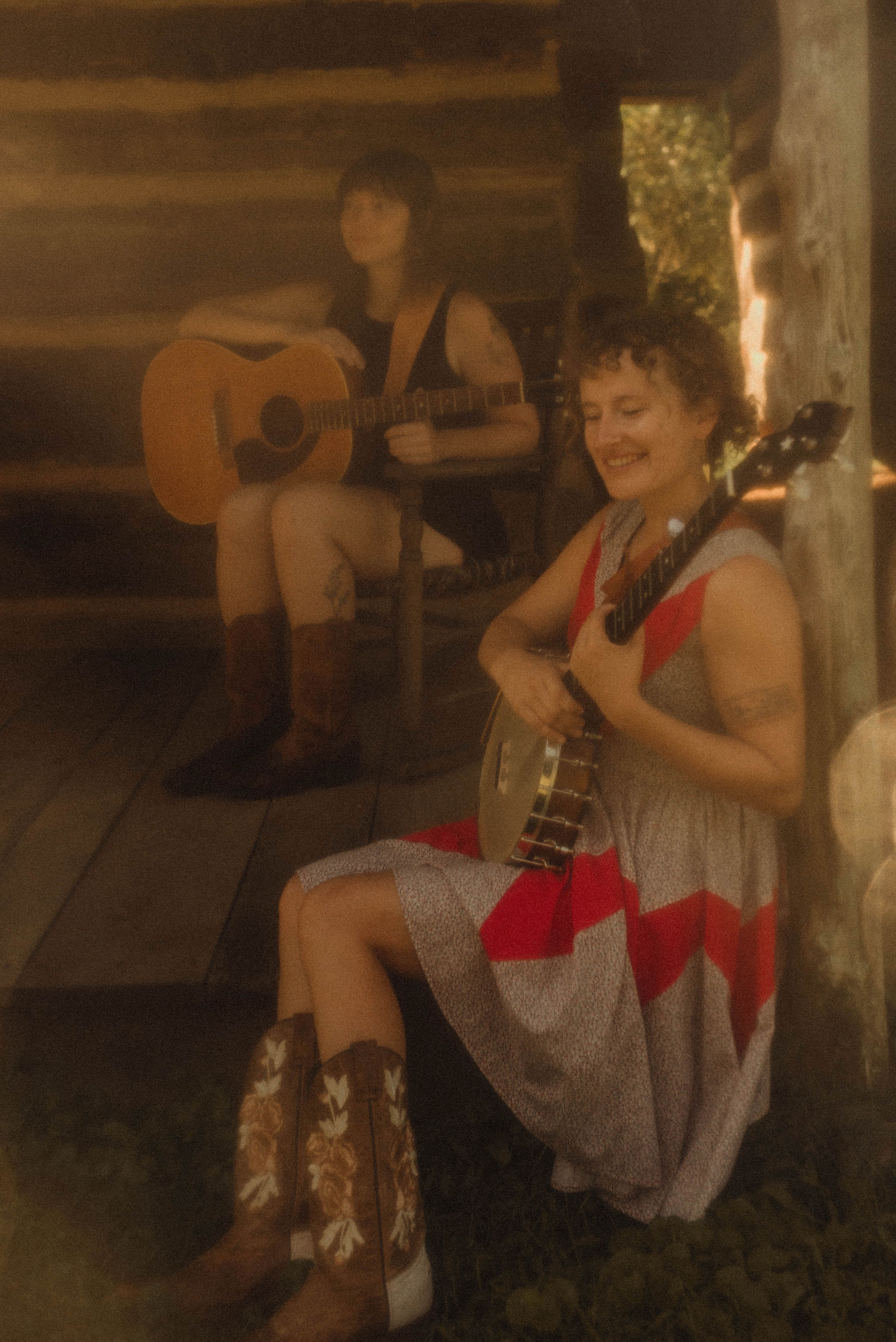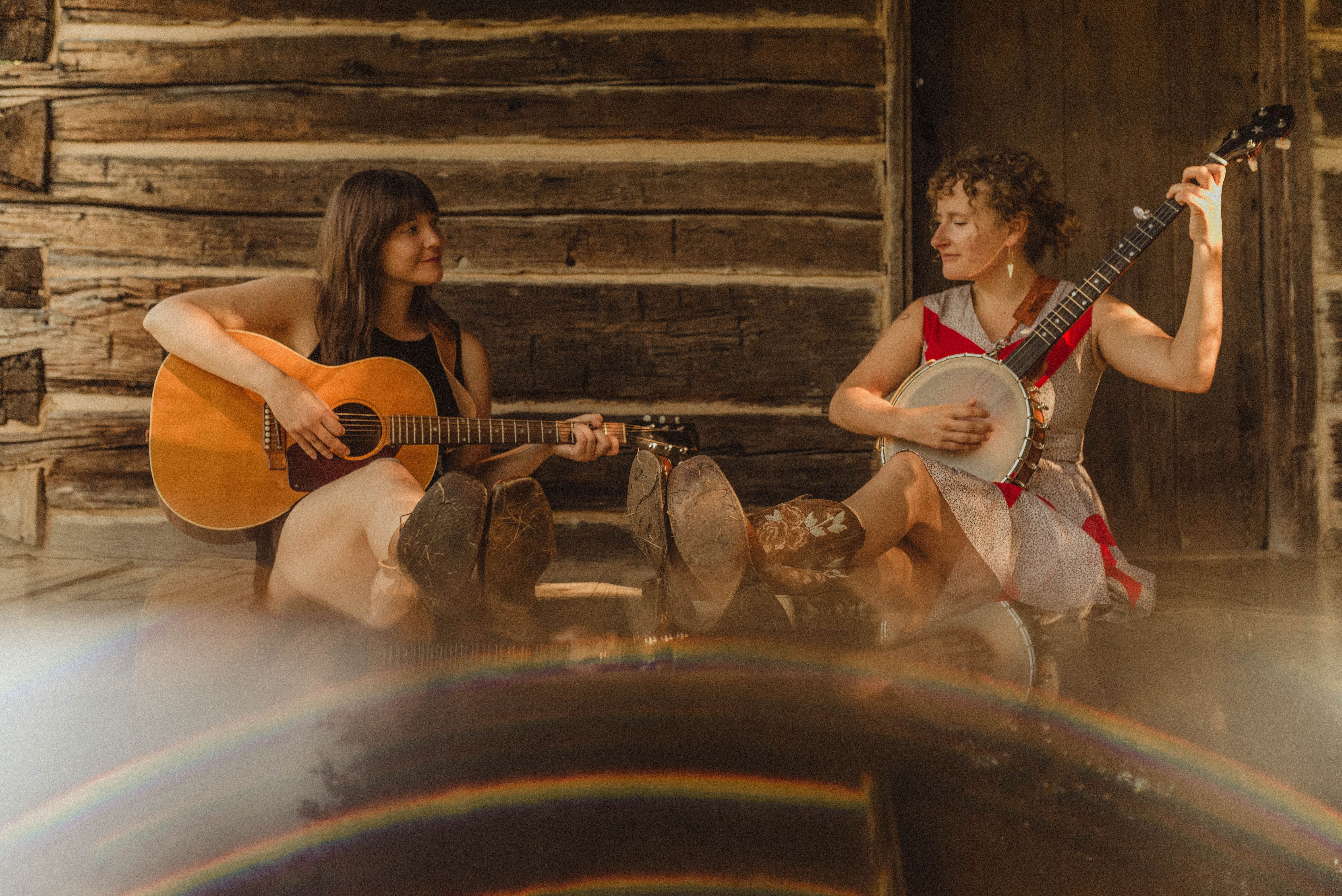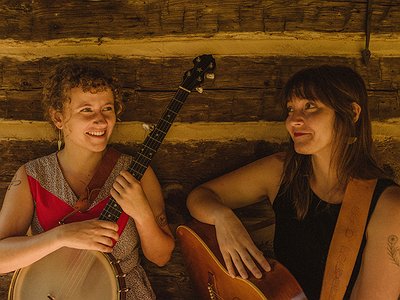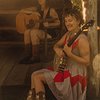Name: The Montvales
Members: Sally Buice, Molly Rochelson
Nationality: American
Current release: The Montvales' new album Born Strangers is out now. Order the album at their online store.
If you enjoyed this The Montvales interview and would like to find out more about the band and their music, visit their official homepage. The duo are also on Instagram, and Facebook.
Do you think that some of your earliest musical experiences planted a seed for your interest in your voice and singing? How and when did you start singing?
Sally Buice: I grew up singing all the time: at church, at camp, in high school chorus, old-time jams at the bygone Time Warp Tea Room in Knoxville, Tennessee. I really didn’t think of myself as a singer until later on, though - singing felt more like a collective part of life than a performance.
But I had songs stuck in my head all the time and I gradually learned to sing them by myself, then sing them by myself in front of people. It was a strange transition, but I’m really grateful that my childhood experiences of singing taught me about the catharsis and power of singing in a community.
I learned early on to relish the moments when everybody gets to sing together. It makes perfect sense that I ended up in a duo with so much emphasis on singing harmonies.
Molly Rochelson: My mom taught me to love singing from day one. She was a troubled teenager who credits high school choir with saving her life, so I grew up understanding singing to be really powerful magic.
As a small child, she sang me to sleep every night. When I got a little older, we’d sing along to nineties country radio in the car on the way to school every day. She taught me how to hear and sing harmonies. On really special occasions we’d go to Big Mama’s Karaoke Cafe in Seymour, TN and she’d cheer me on while I got up to sing (usually "Strawberry Wine" by Deana Carter).
I really owe her a tremendous amount of gratitude for making singing so synonymous with love and connection from early on.
Singing is an integral part of all cultures, and traditions. Which of these do you draw from – and why?
Molly Rochelson: Appalachian music has always been huge for us, given our roots. It’s collective and messy and profoundly of and for the people. It sounds like home and speaks to this really primal ache that I think all humans have some version of.
Even though we don’t really play traditional Appalachian music these days, I think that influence still shows up a lot in how we arrange harmonies. And I also kind of like to think that, as people originally from East TN, we’re just expanding the limits of what Appalachian music means.
Our new record Born Strangers is largely set in Knoxville and is full of modern Appalachian stories.
What were some of the main challenges in your development as a singer/vocalist? Which practices, exercises, or experiences were most helpful in reaching your goals – were there also “harmful” ones?
Molly Rochelson: Being in various school choruses over my childhood was both the most informative and hardest part of my singing education. I loved it so much and was so dedicated, but I never got the solos I auditioned for because my voice is kind of husky and weird for choral music. So I got the educational double whammy of learning how to breathe correctly and sing more difficult harmonies while also getting in some early experience handling rejection and learning to own what’s unique about my voice.
Sally and I also used to busk on the street a lot back in the day, which was full of good and bad vocal lessons. I really know how to project now, but it’s also a wonder we never permanently injured our voices.
Sally Buice: This very much feels like an ongoing process for me. Like Molly, I also had a humbling but informative high school chorus career. My voice started to make a lot more sense to me when I leaned harder into a more traditional Appalachian sound.
I sang a lot with my brother growing up, and he was the one who taught me how to sing harmony. He made a recording of a falsetto harmony part for Tom Waits’ “Come On Up to the House” and taught it to me. I practiced it a million times until I could finally sing it while he was singing the melody.
I can vividly remember the hot frustration of messing it up over and over again, and then finally the feeling of getting it. It was an early lesson for an impatient kid to keep on practicing until it sounds right.
What are the things you hear in a voice when listening to a vocalist? What moves you in the voices of other singers?
Molly Rochelson: I have a soft spot for low voices and intense voices.
I listened to a lot of punk music as a teenager and anyone in the Americana world who conjures that sort of power and attitude with their voice immediately has my attention. Cary Ann Hearst, John Fullbright, and Amy Ray all come to mind.
How would you describe the physical sensation of singing? [Where do you feel the voice, do you have a visual sensation/representation, is there a sense of release or tension etc …]
Molly Rochelson: Singing when I’m in the zone feels like I’m on a ride or like I’m being pulled along by something.
It feels like forward motion and release-like surfing or flying down a hill on a bike.
What kind of musical settings and situations do you think are ideal for your own voice?
Sally Buice: I’ve played and sang in so many different rooms over the past few years. When I started performing in earnest, I didn’t realize yet how many different kinds of folk and americana venues there are.
What I’ve learned so far is that my voice feels most at home in warm and quiet spaces. I work seasonally at a guest ranch in Colorado, and I love playing for folks after dinner when everybody is crowded around the fire and pleasantly exhausted.
I adore crowded honky tonks, but I find that I personally sing better in a space that’s a little bit more lonesome and contemplative. 
The Montvales Interview Image by Suzi Kern
We have a speaking voice and a singing voice. Do these feel like they are natural extensions of each other, ends on a spectrum or different in kind?
Molly Rochelson: My singing voice and my speaking voice feel really far away from each other - almost like two completely different things.
I feel much more confident and empowered when I’m singing than when I’m speaking. I think because singing affords me a lot more room for complexity - I can channel a southern-ness that I’ve otherwise historically carefully stifled, I can get a full thought out without being interrupted or without censoring myself in response to another person’s feelings, I can play with masculinity a little more freely.
I’m also just an overwhelmingly emotional person and singing lets me communicate pure, honest feeling in a way that speaking often doesn’t. But I’d really like to feel like my singing and speaking selves were more integrated - it’s definitely something I’m always working on. 
The Montvales Interview Image by Suzi Kern
When you're writing song lyrics, do you sense or see a connection between your voice and the text? Does it need to feel and sound “good” or “right” to sing certain words? What's your perspective in this regard of singing someone else's songs versus your own?
Molly Rochelson: The way different words feel when I’m singing them is a huge part of how I write. Maybe because we’ve never had a drummer, I tend to put a lot of emphasis on percussive phrasing.
My favorite thing is when the words carry their own rhythm apart from the rest of the song. And some words do sound better in my voice than others, though I couldn’t really tell you why.
It’s definitely something I get hung up on when singing other people’s songs - I’ll have to go over it again and again until it feels natural or I can put a spin on the pronunciation that feels good.
Strain is a particularly serious issue for many vocalists. How do you take care of your voice? Are the recipes or techniques to get a damaged voice back in shape?
Sally Buice: This has come up more than I’d like since we started touring. I’ve gotten really aggressive about staying hydrated, and that has helped more than anything.
I also swear by throat coat tea - it really helps me to have it before performing and keep it on hand onstage.
Molly Rochelson: In the last year I’ve really begun to understand the importance of thoroughly warming up, as well as how it sort of needs to be a full body process for me.
Sally and I can often be found walking around the block and singing rounds together before shows.






